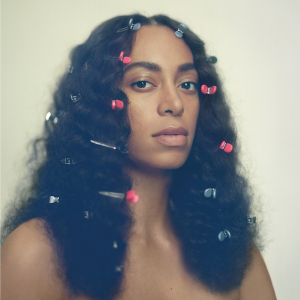
See, you got do stuff till you gotta go sleep at night.
Cause the glory is… is in you
I go back to the album A Seat at the Table (Apple Music, Spotify) every now and then when I need to reconnect with myself. When I first stumbled upon the album, though, I thought that I was only projecting my life onto Solange’s words. But somehow, around four years later, their meaning has been slightly shifting over time only to eventually achieve their final effect: bring me peace. I feel like the songs have become part of me. Or maybe I am still projecting.
And we have to show them the evolution of where we come from.
I'm about to send a message to the world, like...
One of the main things that attracts me to A Seat at the Table is that I don’t understand it completely. Solange’s way of prolonging syllables and merging her voice with the melody, as well as the metaphors, make the songs quite opaque. That was especially relevant for C1-Level-English-learner-16-year-old me who struggled to comprehend R&B lyrics in general. However, over time, my playing of the “English is my second language” card did not make sense anymore, and only now I realize that, instead, the problem is that it took me many months to finally read the songs’ lyrics. In a very unusual fashion for me, I enjoyed the songs without the need to know every exact word. Perhaps that is not surprising at all in this case because, as I mentioned before, Solange’s songs are about the melody, where hearing eighty percent of the lyrics and ninety percent of the (many) instruments will certainly do the job. And by “job” I mean: completely immersing myself in a semi-meditative state for forty minutes.
One of the funny consequences of this ambiguity is that in almost every listening I learn something new. Just today, as I was reviewing the album for this essay, I realized that the chorus of “Don’t You Wait” is, as the name suggests, “Don’t you wait for me,” and not “Don’t you wake up me.” I know that my years-old interpretation does not even make sense on a grammatical level, but I guess I connected the sleep-like ambience of the song to its meaning. This dreamy melody, that is present in much of the album, interacts with self-reflective themes to create an internal monologue that is very easy to relate to. I feel it when Solange sings:
I traveled 70 states
Thought moving 'round make me feel better
I tried to let go my lover
Thought if I was alone then maybe I could recover
To write it away or cry it away (don't you cry, baby)
Away
“Cranes in the Sky,” which is my favorite song of the album, reminds me that I am not the only one making weird decisions like moving to another country at 18 to run away from the real or imaginary metal clouds.
In this album, Solange sings about confusion, self-doubt, fear, isolation, and mistakes – things that I find hard to articulate myself, but that become a bit easier to reflect upon once merged into a nice composition.
My grandfather, he said, 'Why you gon' call it "No Limit"?"
I said, "Because I don't have no limit to what I could do."
Songs cited:
- Interlude: The Glory is in You
- Interlude: This Moment
- Cranes in the Sky
- Interlude: No Limits
I also wanted to discuss the aspect of race that permeates most of the album, but unfortunately I already reached the word count. The songs “Mad,” “…Don’t Touch My Hair,” and “F.U.B.U.” are great in that sense. I resonate I lot with them even though my experience is very different from that of a Black American woman. I think she sings beautifully about the indescribable sensation of being stigmatized on whatever basis, like race or gender.
